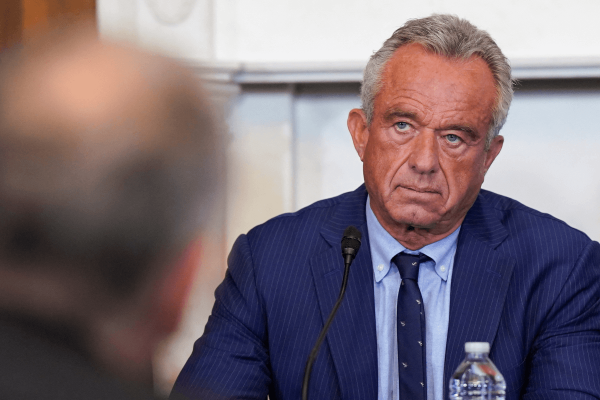THE POLITICAL ENVIRONMENT in this country has caused great concern among many of us, Christian and otherwise. This month’s scripture passages spark various theological and socio-political hauntings that shed insight for us on how to respond.
For instance, we need to understand that God does not seek the destruction of creation to manifest God’s plan. No calamity can be justified as somehow being “God’s intention.” In addition, we need prophetic peace with all of God’s creation. This peace demands justice and reparations. I continue to pray for Palestine, Israel, and other nations where violence abounds. Third, we stand with all the queer people who are experiencing tremendous hardships because of intentional policy choices. Fourth, we will not be fooled by hate speeches that pretend to be freedom speeches. Words matter. We are responsible for what we say on any platform or in any capacity.
Our circumstances require us to respond, in whatever ways we can and on the issues that speak particularly to us. As we do so, even while we create room for self-critique, we are invited to be generous and patient with ourselves as we seek to navigate as wisely as possible these challenging times.
June 1
God didn't start the fire
Acts 16:16-34; Psalm 97; Revelation 22:12-14, 16-17, 20-21; John 17:20-26
WITH MANY, I watched the news as thousands in southern California fled wildfires in January. This week’s psalm (“the mountains melt like wax before the Lord”) haunted me in its apocalyptic theophany — a visible encounter of the divine with chaotic or “end of times” images. It haunts me because I am afraid someone might say or preach (once again) that God is the one who started the fire. The thick clouds of darkness, the hellish fire, the trembling of the ground are (once again) susceptible for theological mis-readings.
How are we to interpret Psalm 97, which seems to describe the “Lord of all the earth” as rejoicing in the fiery consumption of that same beautiful earth? The psalm is descriptive, not prescriptive. That is, it does not say what will happen but describes what is happening. It does not seek the destruction of others. Rather, Psalm 97 is grappling with the reality that the earth is already burning. Where is God in all this? Why did God let my hometown burn down?
Sometimes the silence of God is deafening. The psalmist grapples with the tragedies that seem, always, to beset us.
Instead of claiming that God wants the earth to burn, let us write our own Psalm 97. Express your frustration! Seek answers! Ask why the Alpha and Omega (Revelation 22:13), the omnipotent God, set in place limits that, when we cross them, set the world to burn. Beseech God to come (Maranatha — our Lord, come!) and save God’s people.
June 8
Let there be peace on earth
Acts 2:1-21; Psalm 104:24-35; Romans 8:14-17; John 14:8-17, 25-27
I GREW UP listening to the song “Let There Be Peace on Earth.” It is a melodic song perfect for Christmas, since the lyrics come from Luke 2:14. Another biblical passage, John 14:25-27, promises God’s peace to all. Luke 2:14 declares that this peace comes through Jesus Christ, while John 14:25-27 promises that the Holy Spirit will teach us how to be in peace with one another.
John 14:27 tells us that this peace is not like the peace the world gives. The gospel of John is critiquing the so-called Pax Romana (roughly 27 B.C.E. to 180 C.E.). The Roman Empire tried to gaslight colonized people by declaring that the empire had achieved worldwide peace. The colonized people knew better. The Romans destroyed Judah and the second temple of Jerusalem in 69-70 C.E. The Roman Empire murdered and silenced the colonized to claim they created a peaceful empire.
That is why Acts 2:17-21 describes how the pouring of the Spirit upon all flesh demands a different kind of peace. This peace is prophetic because it declares that the colonized will see visions, dreams will be dreamt, and prophecies will be spoken. Moreover, the earth will show signs of blood, fire, smoke, and darkness. What is peace when one is being oppressed? What does it mean to offer peace when justice is not met? Let there be peace on earth, and let it begin with me — because I need to ask for forgiveness, participate in reparations, and be at peace with others.
June 15
Gender and spirit
Proverbs 8:1-4, 22-31; Psalm 8; Romans 5:1-5; John 16:12-15
MANY SCHOLARS HAVE reflected upon the relational aspect of the Trinity. Some have highlighted the diverse gender expressions of the Holy Spirit. It’s not that the Holy Spirit has biologically associated genders. Rather, we have tried to understand the Holy Spirit with words that are attached to gender expressions. The English language does not fully express the gender inflections present in Greek and Hebrew. Becoming familiar with the gender inflections of ancient languages can help us appreciate the diverse gender expressions of the Holy Spirit.
The naming of the Holy Spirit comes from the Greek word pneuma (“breath” or “wind”), which has neutral gender. Another name for the Spirit is parakletos (Greek for “advocate,” “helper,” or “comforter” as used in John 14:16, 26; 15:26; 16:7; and 1 John 2:1), which has masculine gender. Proverbs 8:1-4 and 22-31 name the Spirit as hokma in Hebrew (“wisdom”), who is created by God and with God from the beginning of time. Hokma, also known as sophia in Greek, is associated with the Holy Spirit. Both hokma and sophia have feminine gender.
In other words, the Holy Spirit is described in various places with masculine, feminine, and neuter genders. I appreciate the diverse gender possibilities of understanding the Holy Spirit because they provide takes on the Trinity that transgress the gender labels humans have created for ourselves. These gender expressions are queering our desire for simplistic understanding of the divine/Trinity, and they echo rather than obscure the mysteries and vicissitudes of our lives.
June 22
Look beyond ourselves
Isaiah 65:1-9; Psalm 22:19-28; Galatians 3:23-29; Luke 8:26-39
I BELIEVE IN the divine (Psalm 22:27-28) because trust in humanity’s capacity for mercy and kindness is wanting. On the other hand, I do not blindly believe in dogmas or subscribe to religiosity that ignores the realities of the oppressed. Rather, believing in the divine is my way of expressing self-critique based on humility and the need for intersectional and mutually edifying relationality with all of creation.
This is one of the reasons why ecological readings of the Bible emerged. If godly presence is not enough to bring about humility and kindness, then perhaps inviting humans to care for the earth will do the job. The Earth Bible team and other ecojustice warriors have been doing so for decades (see Readings from the Perspective of Earth, edited by Norman C. Habel). They have been challenging humanity to look beyond ourselves when it comes to solving problems and mapping the trajectories of our lives.
That is why Galatians 3:28 should not be taken out of context, without the next verse, as a rallying cry for endeavors that ignore God and creation; verse 29 reminds us that wonderful phenomena happen when humans, the divine, and all of creation come together in becoming co-heirs of the promise.
June 29
A spirit of generosity
1 Kings 19:15-16, 19-21; Psalm 16; Galatians 5:1, 13-25; Luke 9:51-62
DOOMSCROLLING THROUGH SOCIAL media has taken a toll on my physical, psychological, emotional, and spiritual health. It has rotted my soul and whittled down my spirit. I try to reduce my exposure to news filled with dissension, strife, and anger, and yet it finds its way into my life, reducing my ability to be loving, joyous, peaceful, and patient.
Social media companies are doubling down on letting their platforms be open to “free speech,” which means allowing patently untrue and malicious posts. I feel I am being targeted now with more “works of the flesh” (Galatians 5:19-21), and that definitely makes me want to respond with words that are not appropriate for those who seek to “inherit the kingdom of God” (verse 21). I hope to live out the fruits of the Spirit (verses 22-23), because they promise respite from the doom and gloom of this world.
I am not so naïve as to assume that living out the fruits of the Spirit is simply a matter of choice, especially for those who are in difficult circumstances. How does one live joyously in the face of oppression? Where is peace when war comes to you? What are self-control and gentleness when social media posts are hateful and even threaten physical harm? I need the Spirit to lead me (verse 18). We all do, especially in these trying times. Let us be generous, especially with ourselves.

Got something to say about what you're reading? We value your feedback!






